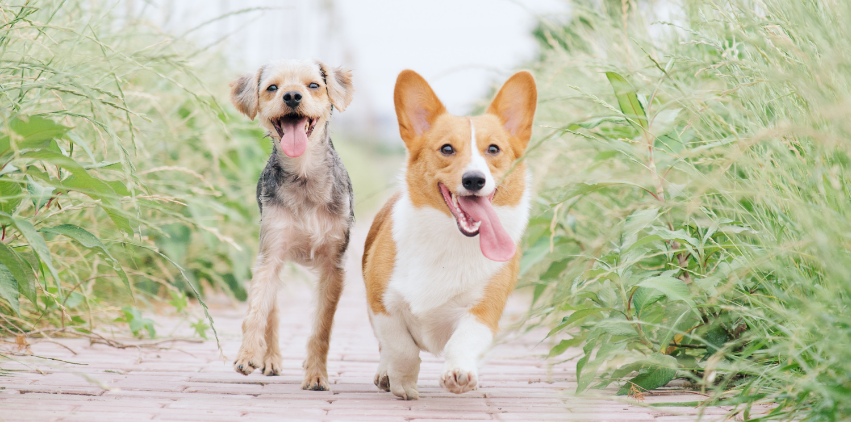

October 11, 2018 | Categories: Pet Health
Just like it’s important for us to have Omega-3 fatty acids in our diet as part of a balanced plan, it’s crucial for your dog or cat to have these nutrients as well. They’re essential sources of energy that are important for cell membranes as well as cognitive and physiological functions for pets.
What are omega fatty acids?
Omega fatty acids are polyunsaturated fatty acids (PUFAs), a type of healthy fat that’s an important calorie source for your pet.
You may have read about fish oils when digging into information about omega fatty acids. That’s because fatty fish—like wild salmon, mackerel, tuna, and anchovies—are good sources of omega-3 fatty acids (for humans and animals). Think back to how your dog’s or cat’s ancestors ate. They may have hunted and fished for food and that’s why these foods are so good for them and an important component of a modern pet’s diet. (You can get omega fatty acids from fish-free sources, too.)
What do omega fatty acids do for dogs and cats?
Omega fatty acids can be delivered from a variety of sources on the ingredient list. Here’s a breakdown of some of the ingredients that deliver these powerful nutrients, as well as how they help your pet’s health. (These indoor and outdoor workout tips will boost Fido’s health.)
Omega-3s are typically delivered through fish ingredients such as salmon oil, salmon meal or real deboned salmon. Another common source of Omega-3s is flaxseed. These fatty acids can help with your pet’s coat and skin health by keeping skin hydrated and preventing it from drying out. The omega-3 fats from fish oils tend to decrease inflammatory processes in the body and may lower blood pressure, according to research from Vet Med Today.
Read the full article on Merrick Pet Care.
Leave a Reply